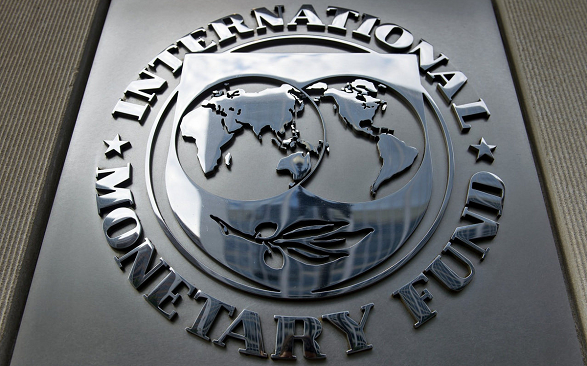In the face of Nigeria’s significant economic and social challenges, the International Monetary Fund (IMF) recently endorsed the nation’s recent regulatory actions on crypto, maintaining that the current administration is on an ambitious reform path to restore macroeconomic stability while driving accelerated growth in the country. This is according to a recent IMF Report on Nigeria, published May 9 2024, where IMF, amongst other economic issues it evaluated, believes that with effective application of anti-money laundering and combating the financing of terrorism (AML/CFT) policies by crypto trading platforms and other virtual asset service providers (VASPs), Nigeria’s economy would be safer.
Recent actions taken by the Nigerian government and regulators to bring crypto adoption under control
The Central Bank of Nigeria’s (CBN) lifted the crypto restriction in Nigeria’s banking and financial system in December 2023, subject to virtual asset service providers (VASPs) meeting the conditions stated in the CBN guidelines for the operation of bank accounts by VASPs.
Most recently, the Nigerian government, particularly through the Office of the National Security Adviser (ONSA), swooped to action in the crypto space by directing affected crypto exchanges, including Binance and subsequently KuCoin, to stop offering peer-to-peer (P2P) crypto exchange services on their platforms. This, reportedly, is due to alleged currency manipulation on these P2P platforms where USD-backed stablecoins, particularly Tether USD (USDT), are made available for exchange with the Nigerian Naira at arbitrary rates often determined by P2P merchants who put maximum profit above all other things.
Similarly, in May 2024, the Securities and Exchange Commission (SEC), at a virtual meeting with the intercommunity group of Nigeria’s blockchain industry players led by the Blockchain Industry Coordinating Committee of Nigeria (BICCoN), disclosed that the SEC is considering banning peer-to-peer (P2P) cryptocurrency exchanges. According to the Director-General, Dr. Emomotimi Agama, who has just been recently appointed by President Bola Tinubu, the decision to ban P2P cryptocurrency exchanges in Nigeria is aimed at safeguarding the local currency, Naira, against manipulation. “Recent concerns regarding crypto P2P traders and their perceived impact on the exchange rate of the naira has underscored the need for collective action,” Dr. Agama said.
Related: IMF’s proposed policy recommends crypto regulation, not ban
The IMF supports the actions taken so far towards crypto regulation in the country.
The IMF, citing that Nigerian “authorities see pressure on the exchange rate now coming from illicit flows and not being driven by fundamentals”, believe that Nigeria is taking the right action to address the risks to external stability from illicit flows, including through crypto asset platforms.
Recall that the central bank of Nigeria claimed in a February news report that over $26 billion in illicit funds was channeled through Binance within one year. This has led to the closure of P2P cryptocurrency trading with the naira on Binance and a number of crypto asset trading platforms that were being used by Nigerians to meet P2P demands.
Likewise, the licenses of 4,173 Bureau de Change (BDCs) that failed to comply with the requisite accounting and reporting requirements were revoked by the CBN at the end of February 2024. Nearly 5000 corporate and individual bank accounts, cumulatively, have been frozen by the CBN and relevant law enforcement agencies following orders obtained from the Federal High Court in the last few weeks in Nigeria.
Read also: Informally Stubborn- Africa’s Blockchain Yearning for a Better Formal Structure
IMF recommends global crypto trading platforms comply with Nigeria regulators.
In light of the developments above, the IMF has encouraged foreign and local crypto exchanges to obtain needed licenses and undergo adequate registrations with market regulators in Nigeria. As stated in the IMF report, IMF “recommends that global crypto trading platforms be registered or licensed in Nigeria and subject to the same regulatory requirements applicable to financial intermediaries following the principle of same activity, same risk, and same regulation.”
The IMF, whose policy recommendation has always favored crypto regulation rather than ban, added that Nigerian regulators should ensure AML/CFT practices are observed by crypto trading platforms operating within its jurisdiction. “Moreover, the authorities should ensure the application of AML/CFT preventive controls by crypto trading platforms and other virtual asset service providers through effective AML/CFT risk-based supervision,” the report added.
Through the provision of clear crypto regulations and licensing of cryptocurrency exchanges, the international monetary agency believes Nigeria could boost its foreign direct investments (FDI), attract international companies, enhance its financial market stabilization and potentially improve remittance mechanisms.
Read also: The Infallibility of the Central Bank of Nigeria and How the Crypto Industry Pays for It
Credit: Ndianabasi Tom A crypto journalist and content writer who has been talking about cryptocurrency and blockchain technology since 2018, Ndianabasi is a Writer at Crypto Asset Buyer (CAB).
Discover more from Crypto Asset Buyer
Subscribe to get the latest posts sent to your email.



